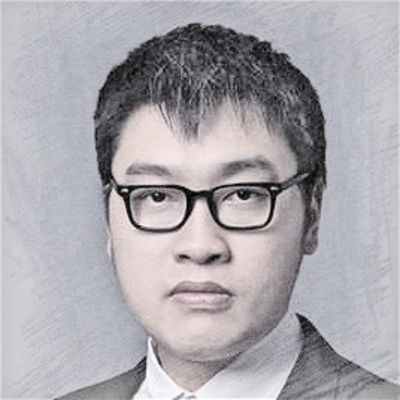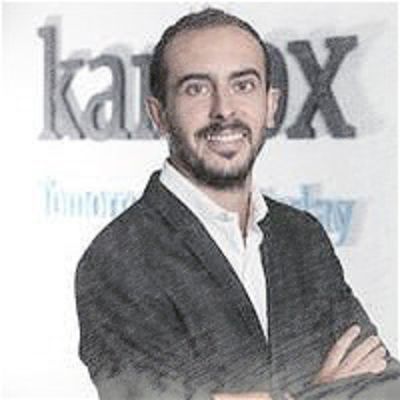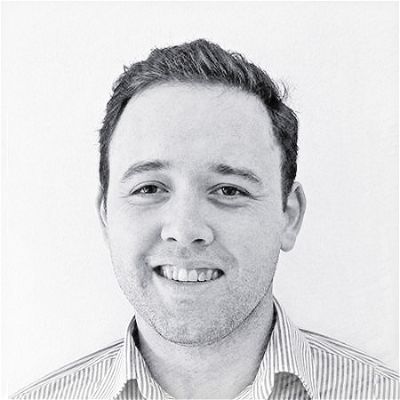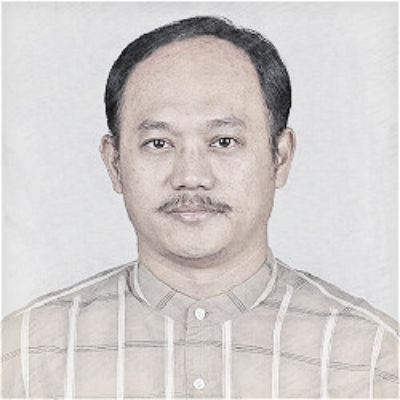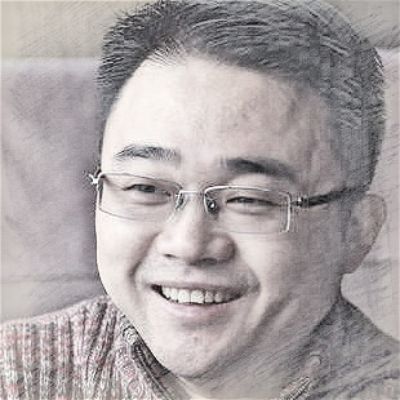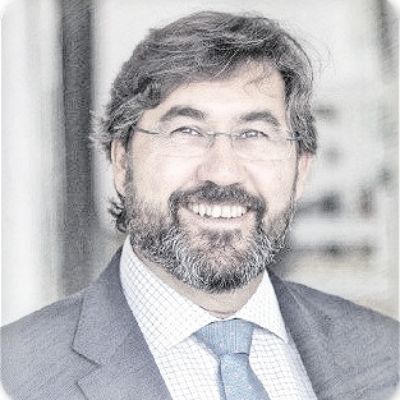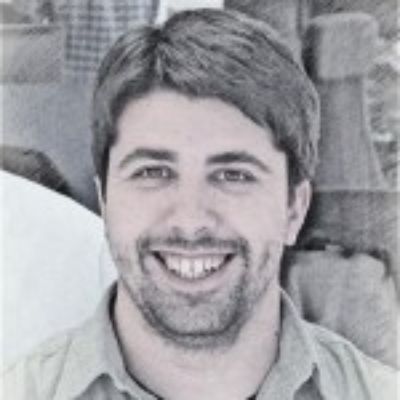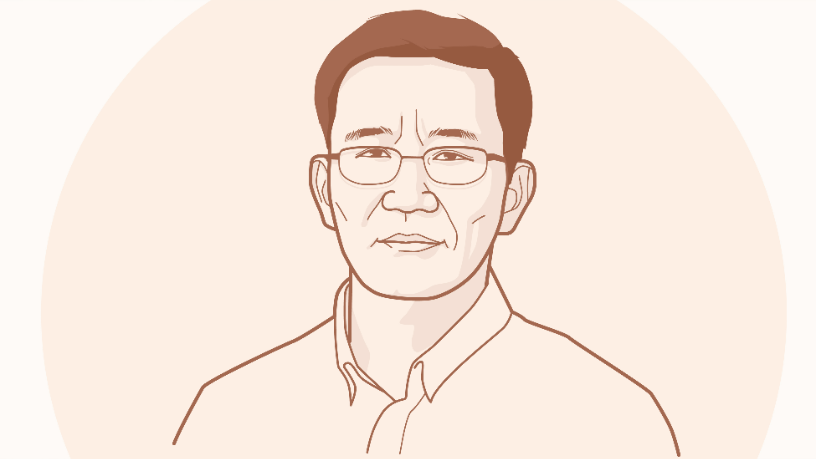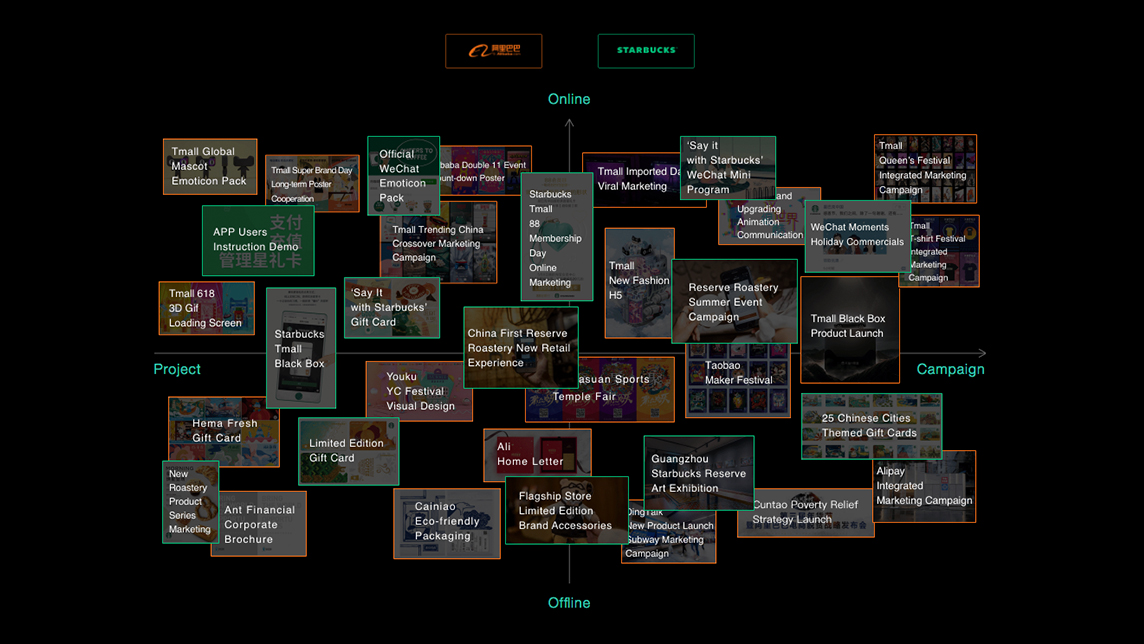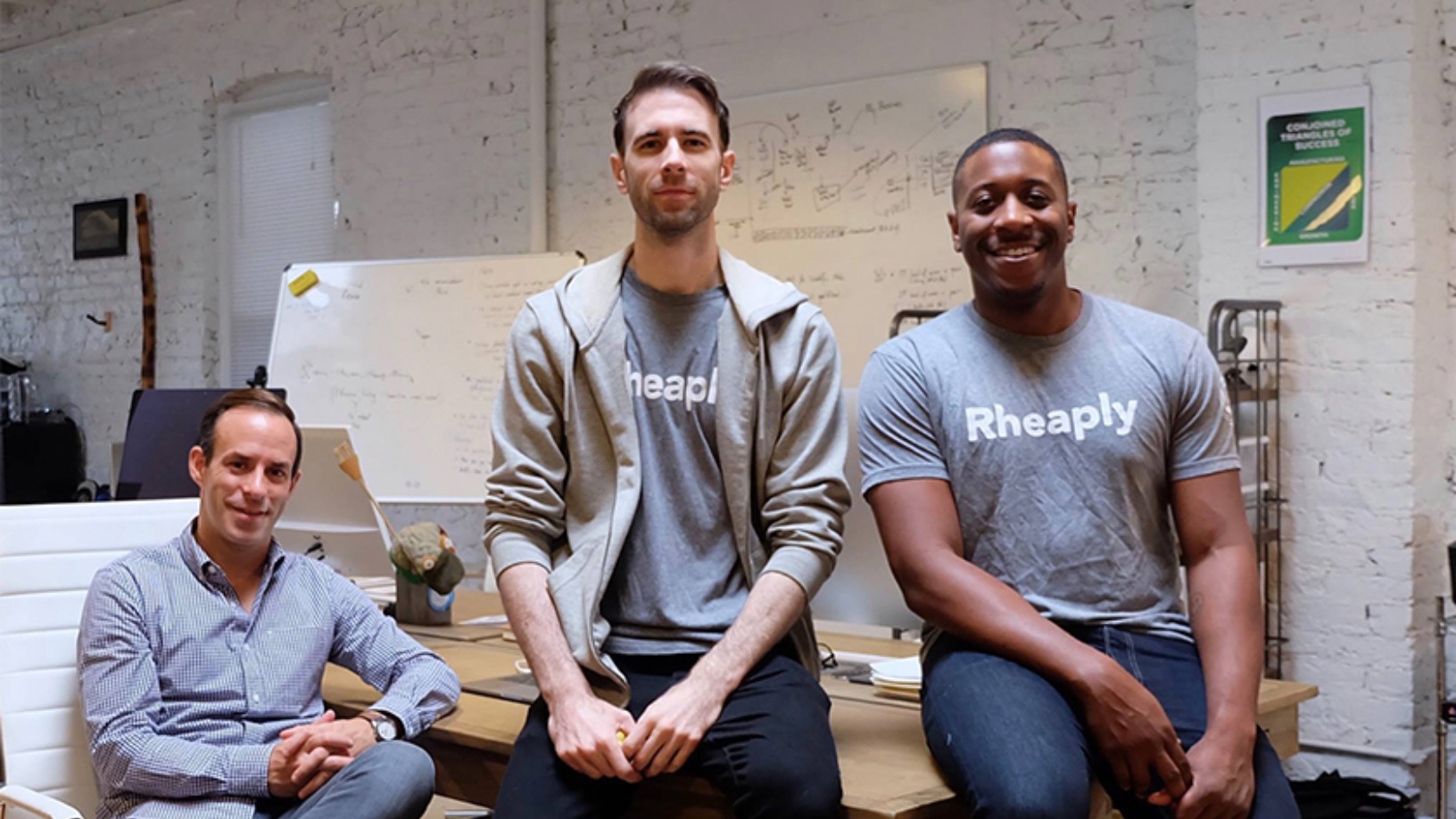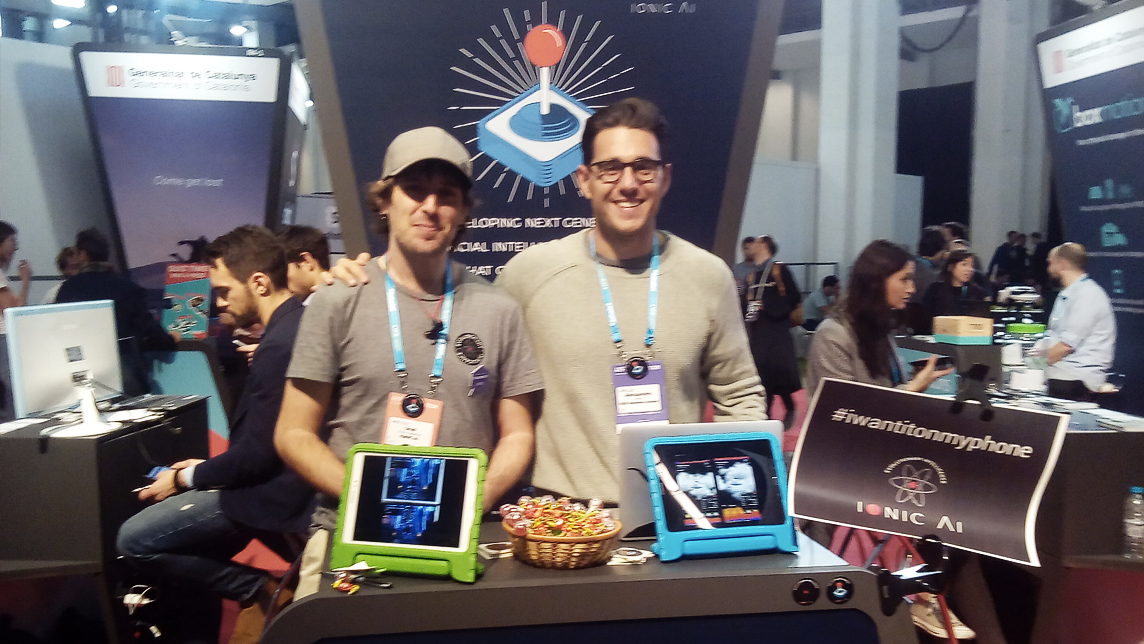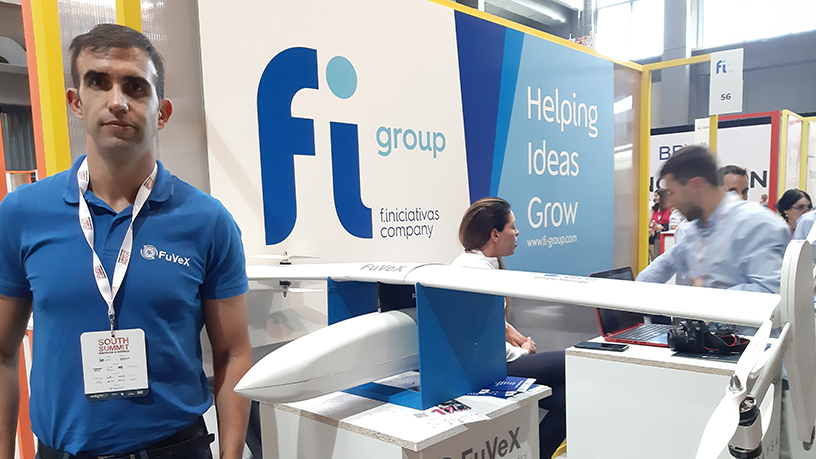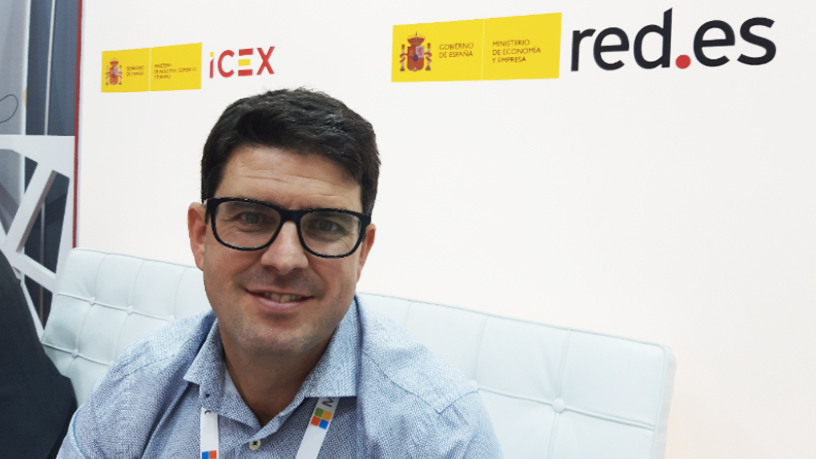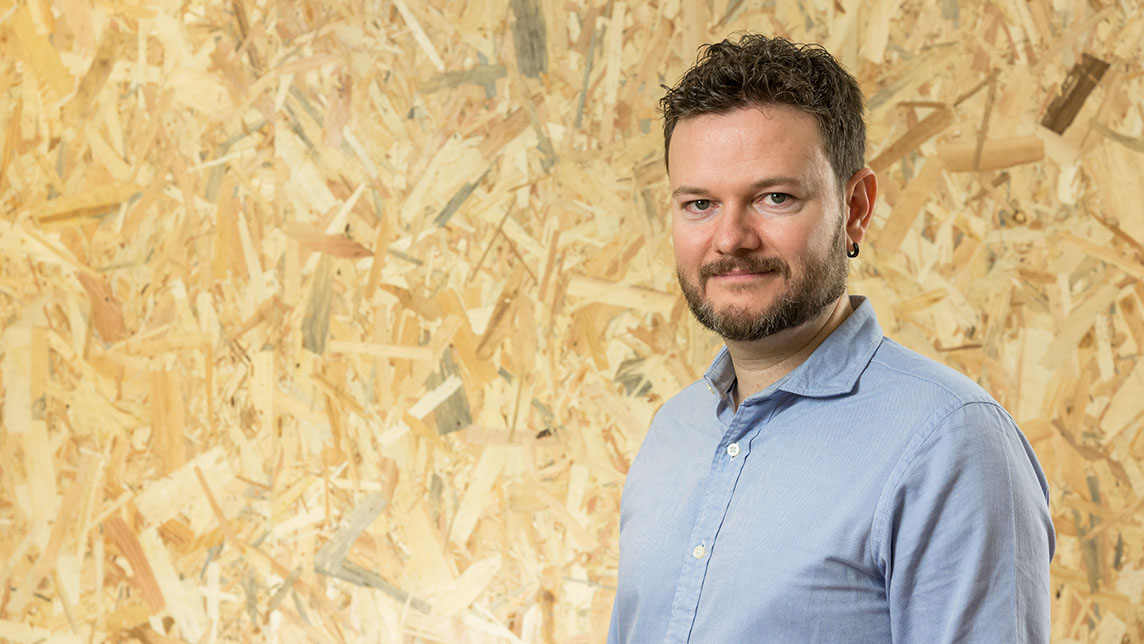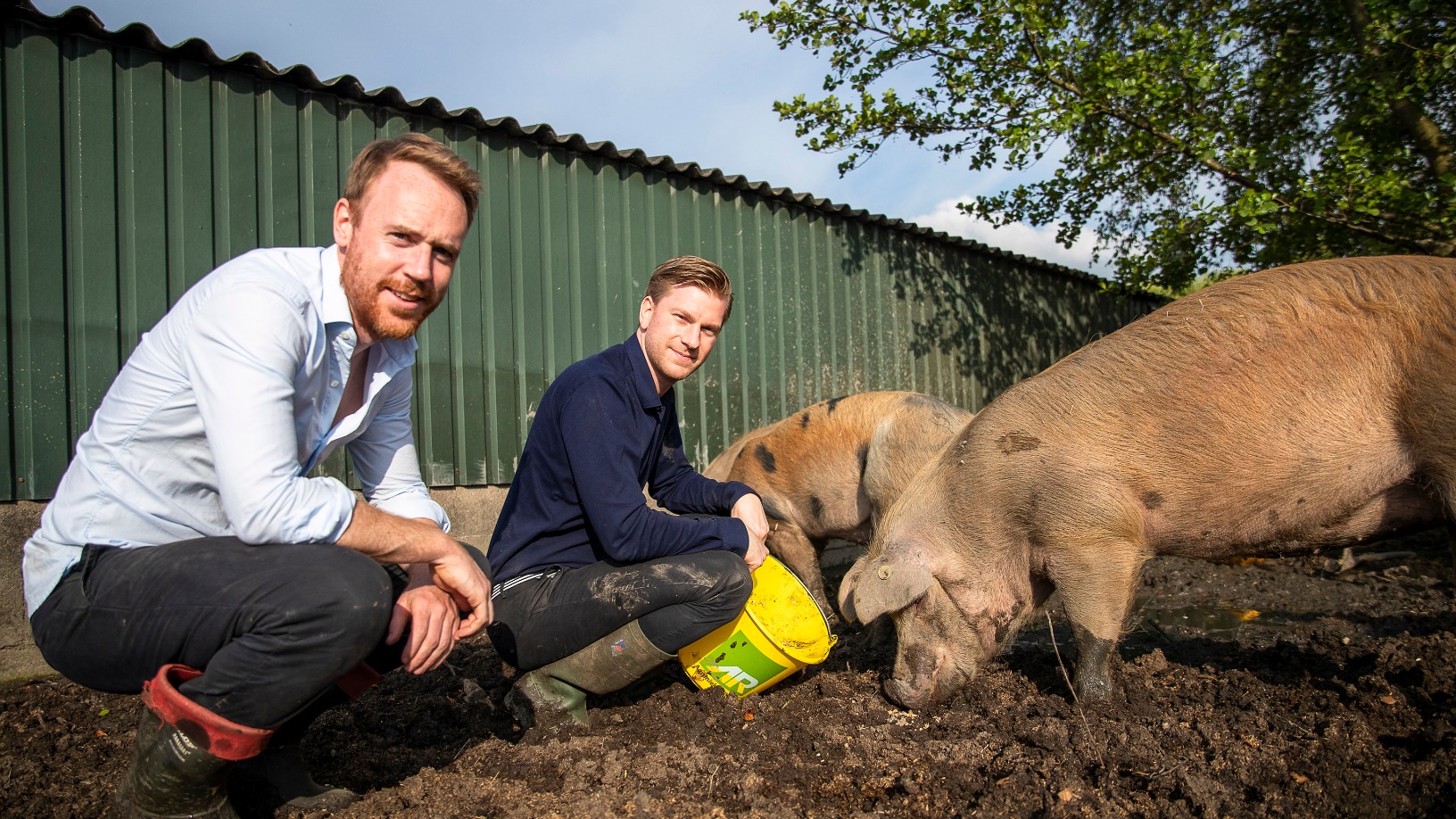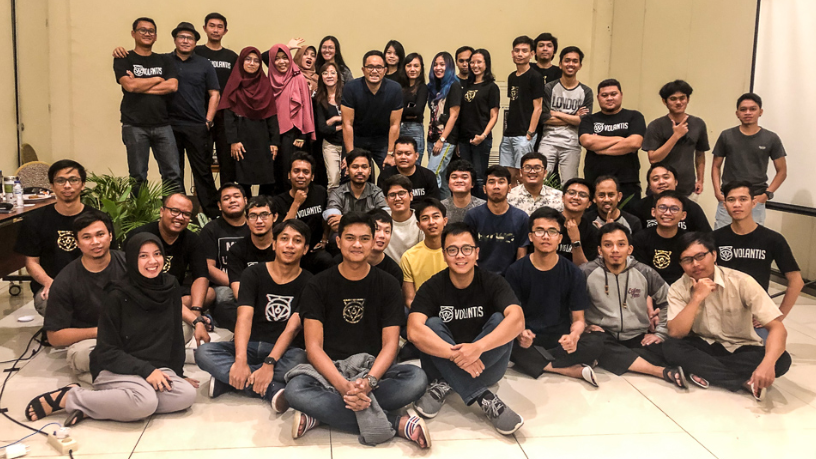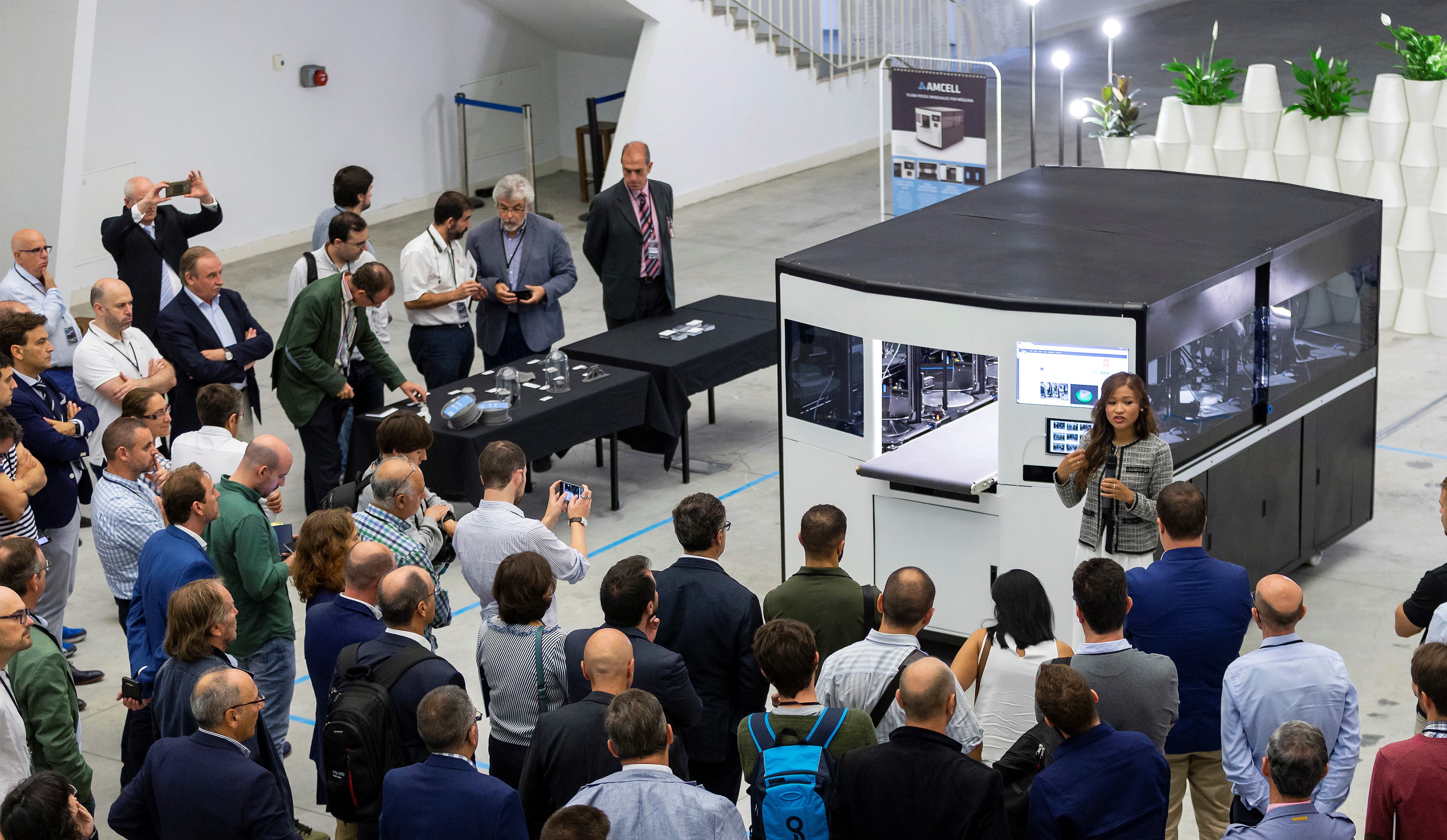QKM Technology
-
DATABASE (584)
-
ARTICLES (519)
Co-founder, CTO of Meatable
Daan Luining is the Dutch co-founder and CTO at cell-based meat startup Meatable, the first to claim a highly scalable culture technology, where he has worked since 2018. He is also a research director at the Cellular Agriculture Society in Leiden, a joint initiative for cell-based startups to share knowledge and to collaborate on projects to further scale the sector. Luining is also on the board of directors at the not-for-profit Cultured Meat Foundation that promotes sector innovation. His past posts have all been in the area of research, either as a researcher or a technician, and at the same time as completing studies. His last job was as a research strategist at New York-based New Harvest, a callular food rsearch funding body, where he worked for a year and met Dr. Kotter, the inventor of Meatable’s cellular technology. His research positions from 2009–15 were in the area of cell culture, mass spectrometry and DNA sequencing at the Maastricht University, University Medical Center Amsterdam, Utrecht University and Leiden University. Luining holds a master’s in biological sciences from Leiden University in the Netherlands.
Daan Luining is the Dutch co-founder and CTO at cell-based meat startup Meatable, the first to claim a highly scalable culture technology, where he has worked since 2018. He is also a research director at the Cellular Agriculture Society in Leiden, a joint initiative for cell-based startups to share knowledge and to collaborate on projects to further scale the sector. Luining is also on the board of directors at the not-for-profit Cultured Meat Foundation that promotes sector innovation. His past posts have all been in the area of research, either as a researcher or a technician, and at the same time as completing studies. His last job was as a research strategist at New York-based New Harvest, a callular food rsearch funding body, where he worked for a year and met Dr. Kotter, the inventor of Meatable’s cellular technology. His research positions from 2009–15 were in the area of cell culture, mass spectrometry and DNA sequencing at the Maastricht University, University Medical Center Amsterdam, Utrecht University and Leiden University. Luining holds a master’s in biological sciences from Leiden University in the Netherlands.
Yu is the founder and chairman of NYSE-listed New Oriental Education & Technology Group. Upon graduating from Peking University with a bachelor’s degree in English in 1985, he started teaching English at his alma mater. Yu resigned from the university in 1991 and, two years later, founded the New Oriental School, where students learned how to pass the TOEFL exam or score high on the GRE. In 2014, he co-founded Hongtai Capital Holdings (Aplus Capital), which manages over RMB 20 billion in assets, with fellow entrepreneur Sheng Xitai. As an angel investor, Yu invests mainly in edtech startups.
Yu is the founder and chairman of NYSE-listed New Oriental Education & Technology Group. Upon graduating from Peking University with a bachelor’s degree in English in 1985, he started teaching English at his alma mater. Yu resigned from the university in 1991 and, two years later, founded the New Oriental School, where students learned how to pass the TOEFL exam or score high on the GRE. In 2014, he co-founded Hongtai Capital Holdings (Aplus Capital), which manages over RMB 20 billion in assets, with fellow entrepreneur Sheng Xitai. As an angel investor, Yu invests mainly in edtech startups.
SoftBank announced its second Vision Fund of about $108bn in July 2019 to invest in technology startups across the world. SoftBank had originally planned to contribute $38bn to the new fund. However, its Vision Fund I was badly affected by the Covid-19 pandemic and losses resulting in lower valuations of its investments in Uber and WeWork.In February 2020, the Japanese conglomerate decided to inject more money into the Vision Fund II before raising new funds from other LPs. With $10bn committed to the second fund by the SoftBank Group, the new fund has now invested in 13 portfolio companies including co-leading the Series C round for XAG in November 2020.
SoftBank announced its second Vision Fund of about $108bn in July 2019 to invest in technology startups across the world. SoftBank had originally planned to contribute $38bn to the new fund. However, its Vision Fund I was badly affected by the Covid-19 pandemic and losses resulting in lower valuations of its investments in Uber and WeWork.In February 2020, the Japanese conglomerate decided to inject more money into the Vision Fund II before raising new funds from other LPs. With $10bn committed to the second fund by the SoftBank Group, the new fund has now invested in 13 portfolio companies including co-leading the Series C round for XAG in November 2020.
Leonardo DiCaprio is a Hollywood actor and angel investor, who runs his own charitable foundation in aid of climate action, wildlife protection, and ecosystems and communities under threat. Since 1998, the Leonardo DiCaprio Foundation has invested more than $100m in some 132 organizations worldwide, the majority of which are charities. DiCaprio has also invested in 12 for-profit companies in recent years. The most recent of these investments include his 2018 participation in the Series A round for Magnus, an app that has been called Shazam for art, as well as a 4Q17 investment in Swiss deeptech player and provider of VR and AR applications technology, MindMaze.
Leonardo DiCaprio is a Hollywood actor and angel investor, who runs his own charitable foundation in aid of climate action, wildlife protection, and ecosystems and communities under threat. Since 1998, the Leonardo DiCaprio Foundation has invested more than $100m in some 132 organizations worldwide, the majority of which are charities. DiCaprio has also invested in 12 for-profit companies in recent years. The most recent of these investments include his 2018 participation in the Series A round for Magnus, an app that has been called Shazam for art, as well as a 4Q17 investment in Swiss deeptech player and provider of VR and AR applications technology, MindMaze.
Founder of Alkemis Games
A master’s degree holder in Entertainment Technology from Carnegie Mellon University, Pennsylvania, USA, Tedo Salim also graduated with a diploma of the same major from Nanyang Polytechnic, Singapore in 2007.Prior to running Alkemis Games, Tedo had worked as a Senior Software Engineer at GREE International Inc in San Francisco, from March 2012 to August 2014. He was with Schell Games in Pittsburgh as a Game Engineer for over three years, working mainly on iOS and Android mobile games such as War of Nations.
A master’s degree holder in Entertainment Technology from Carnegie Mellon University, Pennsylvania, USA, Tedo Salim also graduated with a diploma of the same major from Nanyang Polytechnic, Singapore in 2007.Prior to running Alkemis Games, Tedo had worked as a Senior Software Engineer at GREE International Inc in San Francisco, from March 2012 to August 2014. He was with Schell Games in Pittsburgh as a Game Engineer for over three years, working mainly on iOS and Android mobile games such as War of Nations.
Co-founder and CTO of PesanLab
Ahmad Karim is the co-founder and CTO of PesanLab. Ahmad has a bachelor’s and master’s in Information Technology from Binus University. He had previously worked for two years in IT for one of Indonesia’s biggest logistics company PT Nusantara Card Semesta. He left the company in 2014 to become one of the youngest team member at PesanLab.
Ahmad Karim is the co-founder and CTO of PesanLab. Ahmad has a bachelor’s and master’s in Information Technology from Binus University. He had previously worked for two years in IT for one of Indonesia’s biggest logistics company PT Nusantara Card Semesta. He left the company in 2014 to become one of the youngest team member at PesanLab.
Co-founder and CEO of Zelos
Alvin Evander Subagyo graduated with a bachelor’s in Information Technology and Systems from Monash University, Australia. He returned to Indonesia after graduating to work at Verena Multi Finance as an assistant to the marketing director. In 2014, he co-founded a social media voting startup Votinc, with Markus Liman Rahardja whom he met at Verena Multi Finance. Votinc only ran for a year and the two friends later created Zelos with Chris Winston while they working together at a dining event project.
Alvin Evander Subagyo graduated with a bachelor’s in Information Technology and Systems from Monash University, Australia. He returned to Indonesia after graduating to work at Verena Multi Finance as an assistant to the marketing director. In 2014, he co-founded a social media voting startup Votinc, with Markus Liman Rahardja whom he met at Verena Multi Finance. Votinc only ran for a year and the two friends later created Zelos with Chris Winston while they working together at a dining event project.
Co-founder and CTO of Unbabel
Unbabel Co-founder and CTO Graça is a machine learning and natural language processing specialist and holds a Ph.D. in Computer Science from the Instituto Superior Técnico (IST) in Portugal, where he majored in Computer Engineering. He is also a former postdoctoral researcher at the University of Pennsylvania. Besides working at Unbabel, Graça is a researcher at the IST's Spoken Language Systems Lab (L2F) in Lisbon and an official member of Forbes Technology Council. He also briefly worked at adtech startup Dezine as Chief Scientist.
Unbabel Co-founder and CTO Graça is a machine learning and natural language processing specialist and holds a Ph.D. in Computer Science from the Instituto Superior Técnico (IST) in Portugal, where he majored in Computer Engineering. He is also a former postdoctoral researcher at the University of Pennsylvania. Besides working at Unbabel, Graça is a researcher at the IST's Spoken Language Systems Lab (L2F) in Lisbon and an official member of Forbes Technology Council. He also briefly worked at adtech startup Dezine as Chief Scientist.
CTO and Co-founder of Pony.ai
Named by Andrew Ng as one of the world's best hackers, Lou Tiancheng (b. 1986) holds a BS and a PhD in Computer Science from Tsinghua University, where he joined the Institute for Theoretical Computer Science (now Institute for Interdisciplinary Information Sciences) at Tsinghua University) headed by Turing Award winner Professor Andrew Chi-Chih Yao. Lou began his career at Google X (before it became Waymo), where he worked on autonomous driving technology, leaving Google in 2016. More commonly known by his handle ACRush within the programming community, Lou was named best Chinese coder the TopCoder Open, the Olympics for hackers, 10 years in a row. He is also a two-time winner of Google Code Jam, a global programming competition. Before co-founding Pony.ai, Lou was the youngest T10 engineer at Baidu, where he worked on autonomous driving under Chief Architect and fellow Pony.ai co-founder James Peng.
Named by Andrew Ng as one of the world's best hackers, Lou Tiancheng (b. 1986) holds a BS and a PhD in Computer Science from Tsinghua University, where he joined the Institute for Theoretical Computer Science (now Institute for Interdisciplinary Information Sciences) at Tsinghua University) headed by Turing Award winner Professor Andrew Chi-Chih Yao. Lou began his career at Google X (before it became Waymo), where he worked on autonomous driving technology, leaving Google in 2016. More commonly known by his handle ACRush within the programming community, Lou was named best Chinese coder the TopCoder Open, the Olympics for hackers, 10 years in a row. He is also a two-time winner of Google Code Jam, a global programming competition. Before co-founding Pony.ai, Lou was the youngest T10 engineer at Baidu, where he worked on autonomous driving under Chief Architect and fellow Pony.ai co-founder James Peng.
Co-founder, COO of Kantox
Antonio Rami, also known as Toni Rami, is a co-founder and COO of Kantox, a foreign currency exchange management platform. He was born in Mallorca in 1986 and now lives in Barcelona, where he has worked at Kantox since it was established in 2011. Prior to Kantox, Rami worked as a consultant of strategy and operations at Deloitte and at Inveready Technology Investment Group as an investment advisor. He is a graduate of ESADE Business and Law School in Barcelona and of Singapore Management University, where he completed a master's degree.
Antonio Rami, also known as Toni Rami, is a co-founder and COO of Kantox, a foreign currency exchange management platform. He was born in Mallorca in 1986 and now lives in Barcelona, where he has worked at Kantox since it was established in 2011. Prior to Kantox, Rami worked as a consultant of strategy and operations at Deloitte and at Inveready Technology Investment Group as an investment advisor. He is a graduate of ESADE Business and Law School in Barcelona and of Singapore Management University, where he completed a master's degree.
Co-founder, CMO of Sheetgo
Jonatan Gomes da Silva is the CMO and co-founder of cloud-based fintech Sheetgo. The Brazilian is an IT specialist based in Santa Caterina, Brazil. He has three degrees from two Brazilian universities and the think-tank Fundacao Getulio Vargas in Project Management, Web Programming and Computer Networks. He had previously worked at Moon Tools as a project manager. He was also a technology manager at Abramar Construtora. Both companies were run by fellow co-founder Yannick Rault van der Vaart.
Jonatan Gomes da Silva is the CMO and co-founder of cloud-based fintech Sheetgo. The Brazilian is an IT specialist based in Santa Caterina, Brazil. He has three degrees from two Brazilian universities and the think-tank Fundacao Getulio Vargas in Project Management, Web Programming and Computer Networks. He had previously worked at Moon Tools as a project manager. He was also a technology manager at Abramar Construtora. Both companies were run by fellow co-founder Yannick Rault van der Vaart.
Co-founder of SVARA
Since 2005, Hemat Dwi Nuryanto has been the CEO and Chairman of Zamrud Technology, an Indonesian software development firm. Hemat co-founded SVARA in 2017 as a spin-off of Zamrud; SVARTA develops apps and services for consumers and radio stations while managing the radio broadcast management software previously developed at Zamrud. From 1988 to 1992, Hemat studied at Université Paul Sabatier, France, where he earned bachelor's and master's degree in Mechanics and a master's in Energy Systems.
Since 2005, Hemat Dwi Nuryanto has been the CEO and Chairman of Zamrud Technology, an Indonesian software development firm. Hemat co-founded SVARA in 2017 as a spin-off of Zamrud; SVARTA develops apps and services for consumers and radio stations while managing the radio broadcast management software previously developed at Zamrud. From 1988 to 1992, Hemat studied at Université Paul Sabatier, France, where he earned bachelor's and master's degree in Mechanics and a master's in Energy Systems.
Co-founder of ATRenew (formerly Aihuishou)
Sun Wenjun graduated from Fudan University with a master’s degree in Computer Science. He worked as a research fellow at his alma mater, where he met his future business partner, Chen Xuefeng. After graduating, he worked at Sykes Enterprises as director of technology solutions, drawing an annual salary of RMB1 million. Sun later left his full-time job to co-found customer-to-customer (C2C) second-hand goods trading platform Leyi with Chen in 2010. When that business failed, they co-founded Aihuishou.
Sun Wenjun graduated from Fudan University with a master’s degree in Computer Science. He worked as a research fellow at his alma mater, where he met his future business partner, Chen Xuefeng. After graduating, he worked at Sykes Enterprises as director of technology solutions, drawing an annual salary of RMB1 million. Sun later left his full-time job to co-found customer-to-customer (C2C) second-hand goods trading platform Leyi with Chen in 2010. When that business failed, they co-founded Aihuishou.
Co-founder of Exovite
Mario López de Ávila Muñoz is a Spanish entrepreneur who has established four tech companies, including Exovite and Nodos CTC, the latter in operation since 2001. Muñoz currently works at City_Ex, an initiative aimed at promoting smart city technology among municipalities. He is also a partner at Bip Iberia, a business tech consultancy, where he is focused on enterprise agility. Muñoz holds an Executive MBA from IE Business School and a doctorate in Creativity and Innovation in Industrial Engineering from the Polytechnic University of Madrid.
Mario López de Ávila Muñoz is a Spanish entrepreneur who has established four tech companies, including Exovite and Nodos CTC, the latter in operation since 2001. Muñoz currently works at City_Ex, an initiative aimed at promoting smart city technology among municipalities. He is also a partner at Bip Iberia, a business tech consultancy, where he is focused on enterprise agility. Muñoz holds an Executive MBA from IE Business School and a doctorate in Creativity and Innovation in Industrial Engineering from the Polytechnic University of Madrid.
Co-founder and CTO of Attentive
A developer with over 10 years of experience, Pedro Araújo received his bachelor’s in Computer Science and his master’s in Informatics from the University of Minho. He worked as a web developer and junior programmer at several companies before joining WeDo Technology as a developer and analyst in 2011. In 2013, Araújo joined Network Locum as senior Python/Django developer, leaving the company in 2015 to start Attentive, where he still serves as CTO. Previously, he had co-founded Portuguese startup and events directory NovaWeb with his brother Daniel. NovaWeb closed in 2015.
A developer with over 10 years of experience, Pedro Araújo received his bachelor’s in Computer Science and his master’s in Informatics from the University of Minho. He worked as a web developer and junior programmer at several companies before joining WeDo Technology as a developer and analyst in 2011. In 2013, Araújo joined Network Locum as senior Python/Django developer, leaving the company in 2015 to start Attentive, where he still serves as CTO. Previously, he had co-founded Portuguese startup and events directory NovaWeb with his brother Daniel. NovaWeb closed in 2015.
Li Zexiang and his game-changing plans to take Chinese robotics global
An early supporter of drone giant DJI, Professor Li Zexiang is building robotics hubs across China to pivot homegrown enterprises into global players
Tezign, where design meets technology
By building a bridge between creative talents and enterprises, this Chinese startup is providing designers with more work opportunities
Rheaply: Pioneering B2B asset reuse through technology
Through its SaaS platform, this Chicago-based startup finds success in the under-served corporate second-hand market, essential to any successful circular economy, recently landing $8m Series A
Bound4Blue taps aeronautical technology for sustainable shipping solutions
Bound4Blue's wind-assisted vessel propulsion saves 40% on fuel costs in a €200bn market; eyes European, Asian expansion
This voice technology startup empowers both developers and machines
AISpeech shifted its business from education to IoT but has always remained focused on voice interaction between humans and machines
iOLAND: Farm management technology created for and by farmers
Precision farming startup iOLAND provides farmers recommendations based on data collected by its IoT devices and refined by machine learning
IONIC AI: Human-centric technology that enhances mobile phone performance
Giving new life to old mobile phones and upgrading cheaper ones, IONIC AI's tech also keeps gamers' phones cool for longer usage
Sonic Boom: Using sound wave technology to understand shopper behaviour
Sonic Boom's solution, which enables data to be captured from mobile devices without needing an internet connection, is eyeing Indonesia's huge retail market
FuVeX: Long-range hybrid-technology drones for multiple business uses
With its innovative hybrid helicopter and airplane technology, FuVeX is poised to take full advantage of the business opportunities afforded by new European regulations governing long-range drones
Creatio Energy Systems: From personal hobby to Iberian enabler of IoT technology
Creatio develops fully compatible sensors with a matching SaaS platform, meeting fast-growing IoT demand in Spain, where there are only a few local players
Ontruck CTO: How to build, scale technology in the road freight sector
Iterate fast and understand your clients, explains Samuel Fuentes, co-founder and CTO of Ontruck, because "for us, innovation is business as usual”
Meatable: Cell-based meat startup secures $47m Series A for scalable technology
The Dutch startup offers a pioneering technology for quickly scaling cell-based meat production while eliminating the need for animal-derived growth media
Fumi Technology: Getting ahead of human wealth managers with its Webull robo-advisors
Fumi's AI-based fintech platform offers real-time quotes and free trading to over 10m punters in 100 countries
Volantis Technology: Guiding Indonesian enterprises into "Industry 4.0" with end-to-end AI platform
Volantis Technology helps Indonesian companies incorporate digital transformation and make the best use of their data; eyes Singapore office for overseas markets
Triditive: Enabling SME manufacturers to catch up, thrive in Industry 4.0
An Asturian startup has created the first automated additive manufacturing technology for round-the-clock industrial production
Sorry, we couldn’t find any matches for“QKM Technology”.









